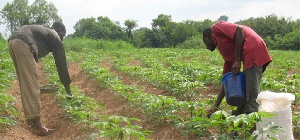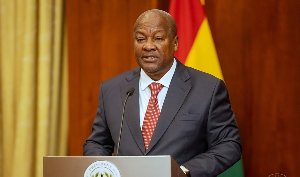A Standard Operating Procedures (SOPs) Handbook to guide the effective management of human trafficking has been launched in the Central Region with a call on stakeholders to commit to work collectively to end human trafficking.
The document was developed by the International Organisation for Migration (IOM) with input from the ministries of Gender, Children and Social Protection (MoGCSP), Employment and Labour Relations, the Interior, and the Justice and Attorney General.
It deals with varied migration-related subjects such as identification and screening protocols, direct assistance, investigation procedures, prosecution, referral and case monitoring framework as well as a special chapter on review of the Trafficking in Person law.
Speaking at the launch, Dr Afisah Zakariah, the Chief Director of MoGCSP, said the SOPs would create deeper understanding of the issue of trafficking, proper victim identification, processes of protecting victims of trafficking and foster closer collaboration among stakeholders.
She described the SOPs as one of the critical steps towards effectively achieving the goal of combating human trafficking in Ghana.
A Child Protection Compact, signed between the Government of Ghana and the United States in 2005, with the aim of reducing child trafficking and increasing the prosecution of traffickers, had yielded positive results for the country.
The MoGCSP had undertaken several initiatives in support of the Compact partnership including the establishment of the Human Trafficking Fund with the seed amount of GHS500,000 for victim protection activities.
Despite the efforts, there was a clear need to enhance national efforts through constant awareness raising and capacity building for stakeholders and the general public to enable them to gain a better understanding of the complex issues of human trafficking and child labour.
However, she said many more efforts were needed because Ghana was a source and a destination country for Trafficking in Person and the menace continued to have devastating effects on the lives of victims who were often subjected to hard labour and sexual abuse.
Dr Zakaria added that prosecution was still low in the country while attitude of the citizenry had not changed significantly as expected.
Mr Thomas Yaw Adjei Baffour, the Deputy Central Regional Minister, stressed the need to protect children from all inhumane activities and put in place pragmatic strategies and institutional framework to seriously address that social canker.
He noted that the launch of the SOPs was a step further towards the combat of human trafficking and entreated all stakeholders to show collective leadership to make the dream of eliminating the menace a reality.
He said government would continue to partner international agencies and other development partners to ensure the survival, development and protection of children and create an equal and enabling educational environment for all children in the country
Mr James Kofi Annan, the President of Challenging Heights, a Non-Governmental Organisation (NGO), said Human Trafficking in Ghana was known on the international scene and indicated that the Central, Greater Accra and Volta regions were the hardest hit.
He said it was a daunting situation, which needed more attention and increased efforts from all stakeholders because many brains and talents were being lost through trafficking and the children, especially those on the lake Volta, needed to be rescued and supported.
Nana Adjoa Awindor of the Obaapa Foundation called on stakeholders to show commitment towards the implementation of the SOPs and said traditional Leaders must be involved in the process.
Traditional leaders, she said, must hold fast to protecting the rights of children and support efforts by the Government and other international partners to eliminate child trafficking from their communities.
Nana Ayimedu Brempong, the Kontihene of Akwamu Traditional Area, called for improved training for security agencies to enable them to professionally discharge their duties in the fight against human trafficking.
General News of Sunday, 28 October 2018
Source: ghananewsagency.org













